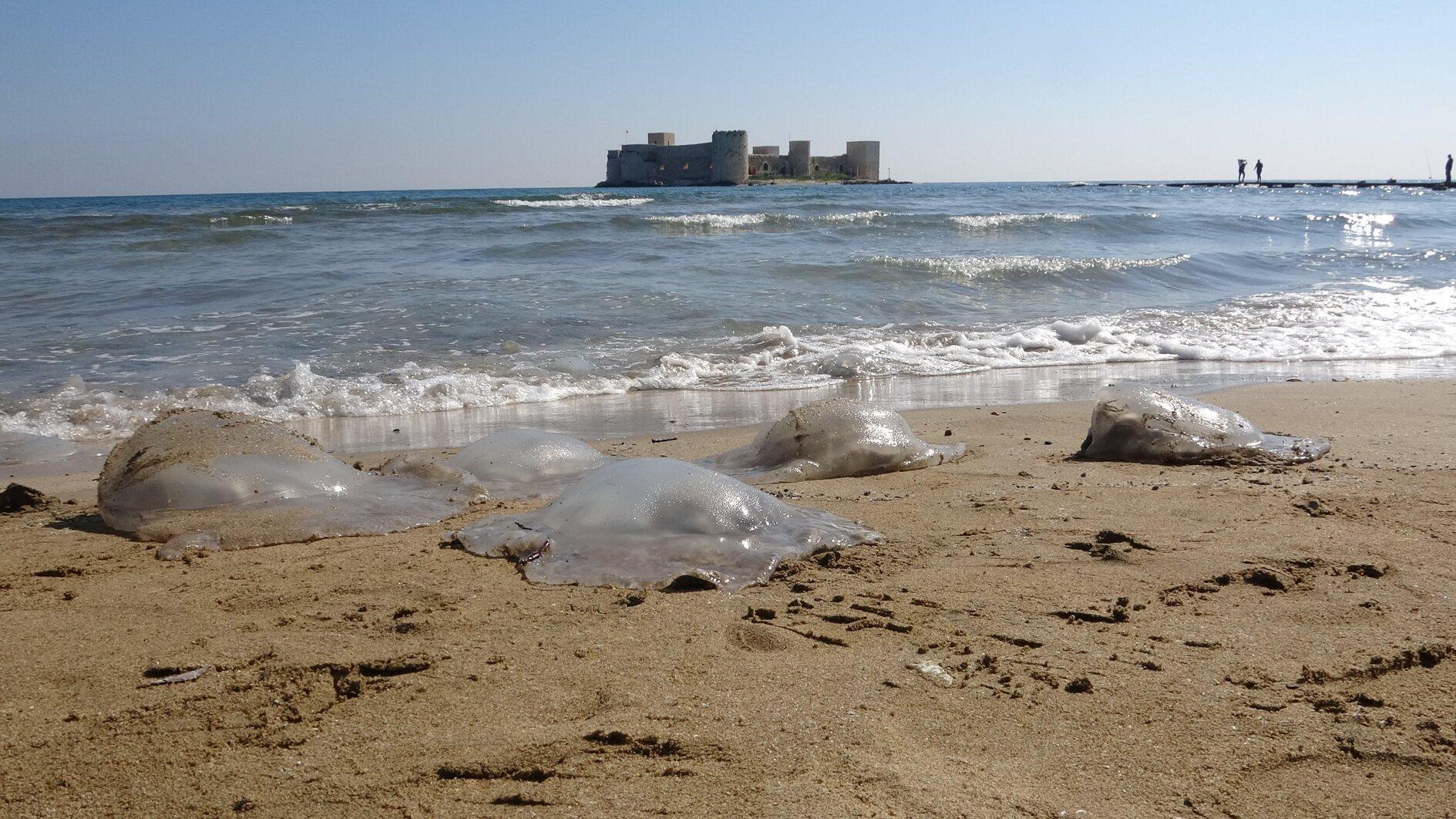Türkiye’s waters see jellyfish surge amid rising temperatures
ISTANBUL

The seas of Türkiye are experiencing an onslaught of jellyfish as rising water temperatures and pollution create a favorable environment for their proliferation.
Jellyfish populations along Türkiye's coastline have surged in recent years, particularly in the Marmara and Mediterranean Seas, due to warmer temperatures and environmental degradation. In the southern city of Mersin, a popular tourist destination on the Mediterranean, beaches have been inundated with jellyfish, alarming locals and tourists alike.
"The Marmara Sea will continue to warm like other seas. Unless the pollution load is reduced, there is a high probability of mucilage formation again,” said Professor Dr. Mustafa Sarı, the dean of the Faculty of Maritime Studies at Bandırma Onyedi Eylül University.
The Middle East Technical University (ODTÜ) Climate Center's Director, Prof. Dr. Barış Salihoğlu, pointed out the Marmara Sea's high pollution levels and ongoing oxygen depletion below 25-30 meters.
Their MARMOD project, backed by the Environment, Urbanization and Climate Change Ministry, has established a replica of the Marmara Sea, identifying pollution sources from urban, industrial, and agricultural areas and climate change compounds these issues.
Professor Dr. Melek İşinibilir Okyar, leading a project investigating the reasons behind the jellyfish surge, pointed out that jellyfish proliferation is often a precursor to mucilage formation.
"There's a mucilage risk with warmer temperatures in winter months. Jellyfish also play a catalytic role in mucilage formation. When jellyfish multiply and die, they begin to disintegrate, leading to decreased oxygen levels and the accumulation of dissolved organic matter,” Okyar said.
“When temperature accelerates this process, mucilage forms in the environment. If there is organic matter to stick to in that environment, it starts to accumulate and eventually turns into masses.”
















